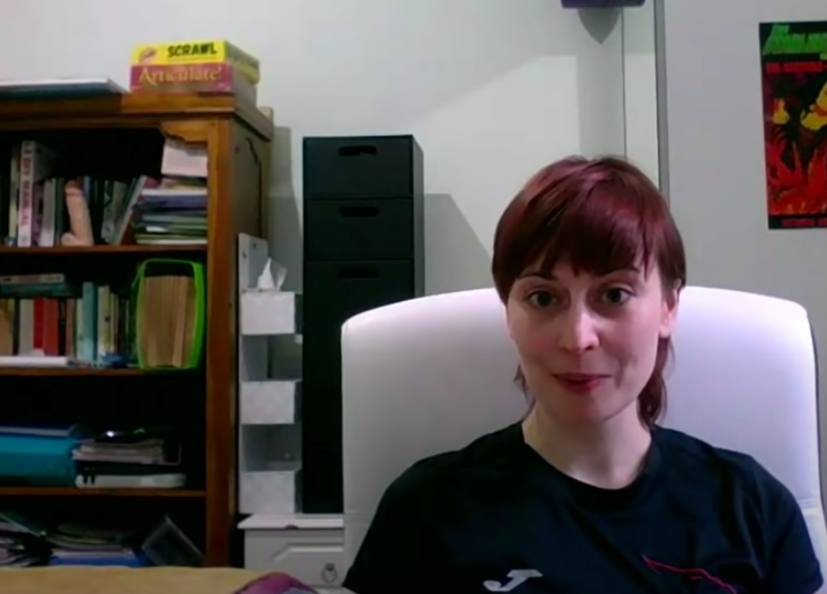In the digital age, where content is king and social media holds the crown, becoming a viral sensation often takes just one unexpected moment. That’s precisely what happened to Yvette Amos a Welsh woman who unknowingly catapulted herself into internet stardom after appearing on a BBC interview in early 2021. Her now-iconic television moment, which many recall for a rather surprising background detail, quickly became a global talking point, meme fuel, and an unexpected lesson in the power of online virality.
In this article, we explore who Yvette Amos is, what happened during that infamous BBC Wales interview, why the moment captured the internet’s imagination, and how it has impacted her life since. We’ll also take a look at the broader cultural significance of such moments and how they reflect the increasingly blurred lines between professional and personal spaces in the remote working era.
Quick Bio
| Name | Yvette Amos |
|---|---|
| Profession | Unknown / Civilian |
| Nationality | Welsh |
| Famous For | Viral BBC Wales Interview |
| Date of Viral Clip | January 2021 |
| TV Appearance | BBC Wales Today |
| Location | Wales, United Kingdom |
| Viral Element | Background bookshelf item |
| Internet Reaction | Humorous and supportive |
| Meme Status | Viral Zoom moment icon |
| Public Response | Stayed private |
| Media Coverage | Global (BBC, BuzzFeed, etc.) |
| Social Media | Low profile |
| Legacy | Symbol of remote work humor |
Who Is Yvette Amos?
Before she became a household meme, Yvette Amos was a relatively unknown individual. She is based in Wales and, like many others in the UK during the COVID-19 pandemic, was dealing with job insecurity and mental health challenges. At the time, she had been invited by BBC Wales to discuss the toll the pandemic had taken on employment and wellbeing.
Yvette was featured as a guest on the program to bring a human perspective to a topic that had largely been discussed in statistics and policy. Her insights were heartfelt, sincere, and relatable. But it wasn’t her commentary alone that caught the attention of the viewers—it was what appeared behind her during the live broadcast.
The Viral Moment What Happened?
During the BBC interview, Yvette Amos was seated in front of a bookshelf. Like many remote interviews, her background appeared unremarkable at first glance. However, eagle-eyed viewers quickly noticed something unusual among the books and ornaments—a rather conspicuous adult toy.
That’s right. Nestled casually on the bookshelf was an item not typically associated with public interviews or news programming. Within moments of the segment airing, Twitter lit up with screenshots, reactions, and memes. The toy was neither acknowledged by the presenter nor by Yvette herself, adding to the unintentional comedic value of the moment.
This blink-and-you’ll-miss-it detail turned the entire segment into internet gold. The video clip was shared thousands of times across social platforms, and “Yvette Amos” began trending on Twitter in the UK. News outlets across the world picked up the story, often with humorous headlines like:
- “BBC Guest Accidentally Becomes Internet Star Due to Background Blunder”
- “Shelf Shock: BBC Interview Goes Viral for X-Rated Easter Egg”
Why Did This Go Viral?
Several factors contributed to the virality of Yvette Amos’ interview:
- 1. Timing
The incident occurred during a period when much of the world was still under lockdown restrictions. People were working from home, using Zoom and Skype daily, and were highly familiar with the awkwardness of video calls. This shared context made the moment instantly relatable and funny.
- 2. Authenticity
Yvette was not a celebrity or influencer. She was an everyday person appearing on a serious news program. The sheer normality of the situation, juxtaposed with the unexpected adult toy in the background, created a sense of authenticity that often sparks viral moments.
- 3. Memes and Humor
Social media thrives on memes, and the image of Yvette’s bookshelf was prime material. Users edited the image, added captions, and created reaction videos. The meme-ification of the moment gave it extended life beyond the original broadcast.
- 4. The “Zoom Era” Culture
In the age of remote work, everyone has faced background mishaps—whether it’s a pet, child, or accidental exposure of private items. Yvette’s situation struck a chord with viewers who could imagine the same thing happening to them.
Public Reaction and Media Coverage
Public reaction was largely light-hearted and supportive. Many commended Yvette for unintentionally brightening up their day. Others saw it as a harmless example of how real life can sometimes intrude into professional settings.
Some critics, however, questioned the ethics of spreading the screenshot without her consent. The debate around privacy in viral content became part of the conversation, with discussions on how quickly online attention can shift from playful to invasive.
Despite this, the vast majority of responses remained good-natured. Media outlets from BuzzFeed to The Guardian covered the story, often adding it to their “feel-good” or “odd news” segments. Yvette herself did not immediately comment publicly, maintaining a low profile while the internet buzzed around her.
Impact on Yvette Amos’ Life
While many viral stars attempt to capitalize on their sudden fame, Yvette Amos remained refreshingly private. She did not leverage the moment for fame or commercial gain. Instead, her case served as a reminder that not every viral figure is seeking the spotlight—and sometimes, the best response is simply to laugh along and move on.
That said, Yvette’s moment has continued to resurface in “funniest Zoom moments” compilations, retrospectives on remote work culture, and internet nostalgia articles. She has become a footnote in the timeline of pandemic-era pop culture, joining the ranks of other viral stars like the BBC Dad, whose children famously crashed his live interview in 2017.
What We Can Learn from the Yvette Amos Moment
There are a few key takeaways from this incident:
- 1. Check Your Backgrounds
It’s a modern rule of thumb—before going live or joining a video call, take a good look at what’s visible behind you. It only takes one small detail to steal the spotlight.
- 2. The Power of Humor
In a time of global anxiety, people craved humor. Yvette’s interview provided a moment of levity that resonated across cultural and geographic boundaries.
- 3. Digital Virality Is Unpredictable
Yvette Amos did not set out to go viral. Her experience is a textbook example of how unpredictable the internet can be. It also shows how ordinary people can become the face of a trend—often without warning.
- 4. Kindness Still Matters
Thankfully, the overall tone of the viral response was one of warmth and laughter, not ridicule. The internet can be a harsh place, but this incident showed that people are also capable of compassion and good humor.
Conclusion
Yvette Amos turned what was meant to be a serious discussion on mental health and unemployment into an unforgettable cultural moment—not intentionally, but through the quirks of live TV in the era of remote work. Her story is a perfect encapsulation of how human, relatable, and sometimes hilarious, our transition to digital life has been.
In the years since, Yvette has faded back into normalcy, but her legacy lives on in memes, Zoom etiquette articles, and the hearts of those who needed a laugh during a tough time. Her viral moment is a testament to the strange, spontaneous joy that sometimes emerges in our most vulnerable and unscripted moments.







